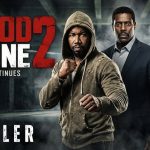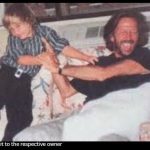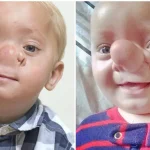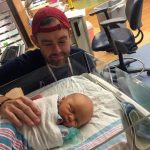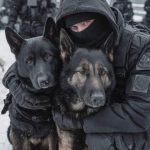Ruben’s Roar: The Lion Who Found His Voice Again
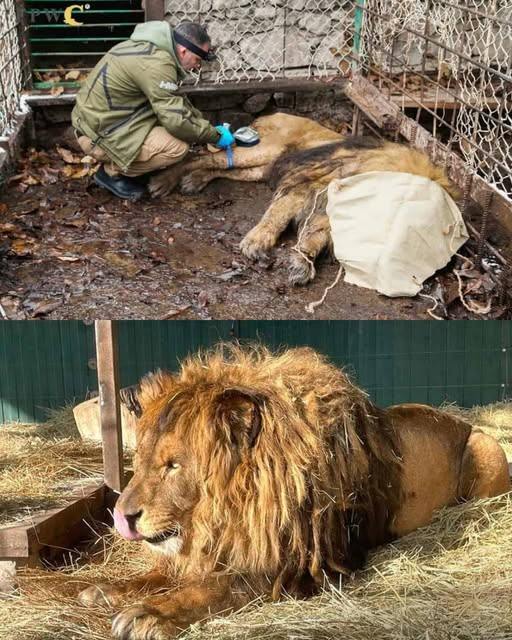
Ruben’s Roar: The Lion Who Found His Voice Again
For most of his life, Ruben lived in silence.
Once, he was the star of a circus — the king of the ring, admired by cheering crowds who marveled at his golden mane and powerful stance. Under the bright lights, he roared on command, the sound echoing through tents filled with laughter. But when the circus folded and the crowds disappeared, Ruben’s world went quiet.
Trapped behind rusted bars, forgotten by those who once profited from his strength, he was left alone in an abandoned cage. The concrete beneath him cracked with time. The air hung heavy with dust and heat. His food came sporadically, his water dirty and scarce.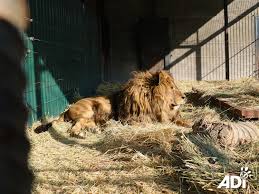
In the long, endless days that followed, silence became his companion. He forgot the scent of grass, the rustle of trees, the warmth of sunlight unfiltered by metal. His muscles weakened; his spirit dimmed. The only sounds were the buzzing of flies, the soft scrape of his breath, and the distant hum of a world that had moved on without him.
Years passed. No one came. The lion who once commanded the arena now barely lifted his head. In his dreams, though, Ruben was still free — running beneath starlit skies, his mane lifted by the wind, his voice roaring across the plains.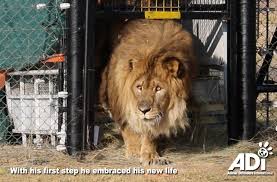
Then, one morning, the quiet broke.
The cage door creaked open, and light poured in. Human voices — gentle this time — filled the air. Hands reached toward him, not to control, but to care.
Rescuers from an animal welfare organization had finally found him. They spoke softly, moved slowly, and for the first time in years, Ruben felt something stir within him — a flicker of trust, a faint memory of hope.
When he stepped out, his paws met real earth. The ground was cool, the wind alive. He blinked against the sunlight, tasting freedom in the air.
At the sanctuary that became his new home, Ruben began to live again. He learned to walk without fear, to rest beneath trees instead of bars, to listen to the rustle of leaves instead of silence. Each day, he grew stronger — his eyes brighter, his steps surer.
But still, he did not roar.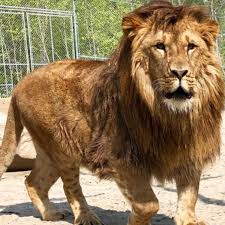
Days turned to weeks, weeks to months. Caretakers wondered if he ever would. Perhaps, they thought, the voice that once ruled the circus had been lost forever.
Then, one dawn, it happened.
As the sun rose over the plains, a distant sound carried on the wind — the deep, rumbling call of another lion. Ruben froze. His ears lifted. His heart pounded. And then, deep within his chest, something awakened.
A sound began to rise — soft at first, uncertain, then growing stronger. It rolled through the sanctuary, deep and thunderous, echoing against the hills. The other lions answered, and the morning filled with a chorus of life.
Ruben roared.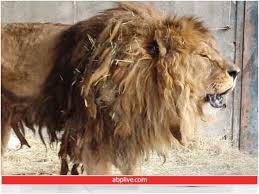
It was a sound of power, of memory, of rebirth. After years of silence, he had found his voice again — a voice that spoke not of captivity, but of survival.
And for the first time in a very long time, the world listened.
Because Ruben’s story isn’t just about one lion who found freedom. It’s about every living being that deserves it — every creature waiting behind bars for a second chance to feel the sun, the grass, and the sound of its own voice.



